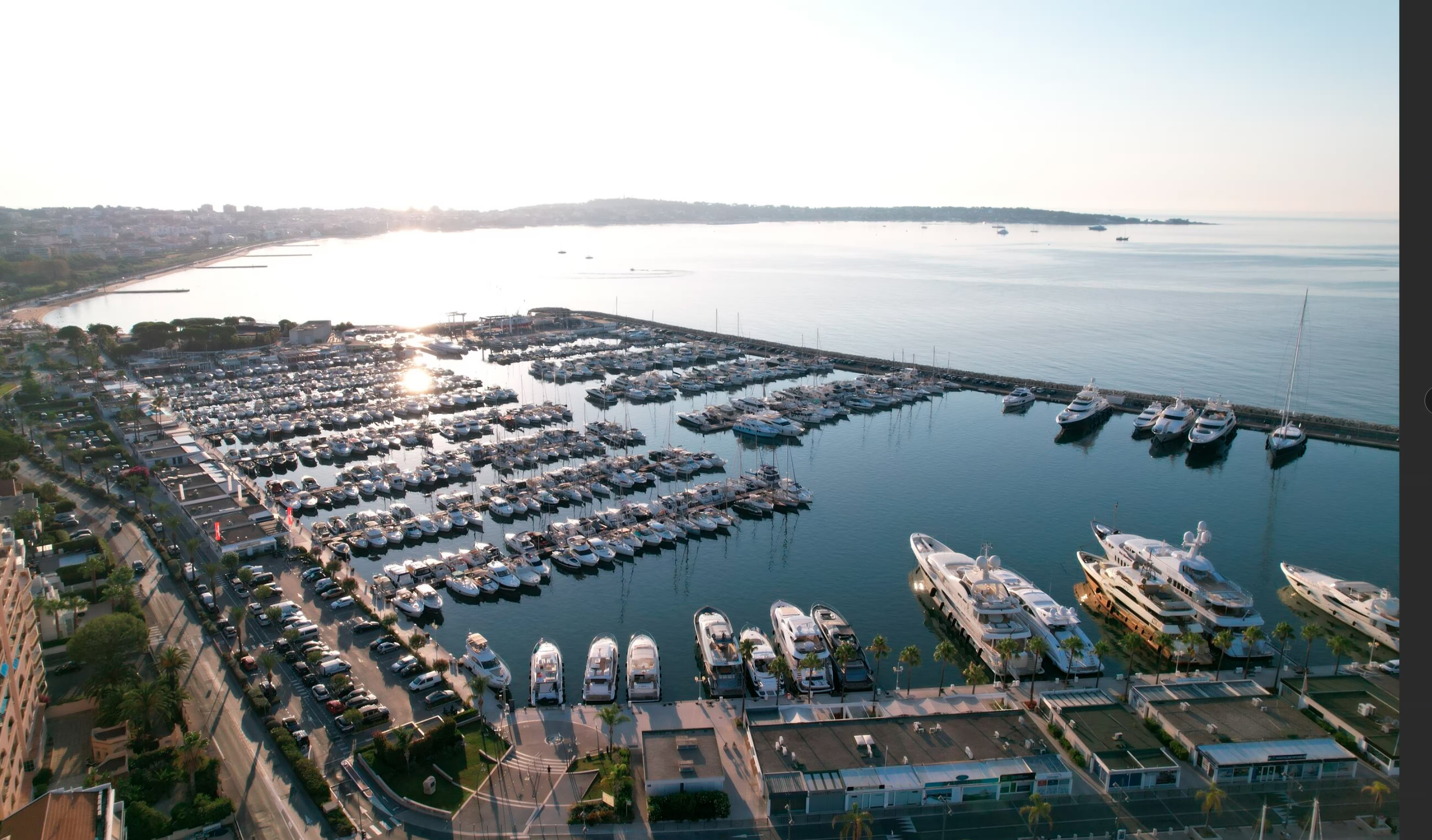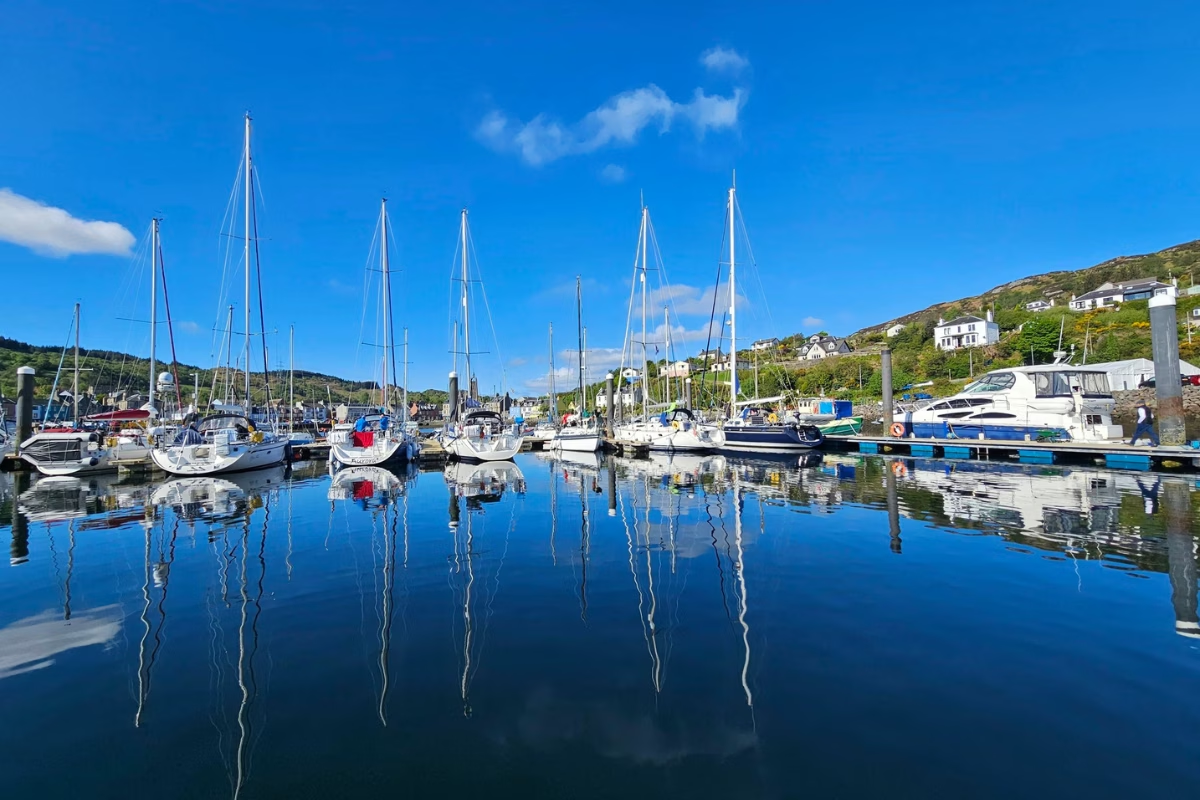For many of us, artificial intelligence has become an integral part of our daily lives. We ask Alexa to play music, call on Siri for the weather forecast, use smart home technology to turn on the heating or dim the lights, generate text with ChatGPT or refine emails with Microsoft’s Copilot, and unlock all these devices with facial recognition; love it or hate it, the AI era is here. It’s in our workplaces, homes, cars, devices and social media feeds. But what about in marinas?
_converted.avif)
The uptake of AI in the marina sector is growing rapidly, according to industry experts. Idan Cohen, co-founder and CEO of marina reservation software Pick a Pier, says the industry is seeing the early adoption of AI technology in larger, networked marina groups and regions with strong investment capacity – parts of Europe, the Middle East and the Mediterranean basin, in particular. “These networks have both the incentive and the scale to leverage AI effectively,” he says.
One such network is D-Marin’s. The company’s vision of developing fully “smart” marinas is rapidly becoming a reality across its network of 26 sites in the Mediterranean and Gulf region, due to its significant investments in digital innovation. Mattias Gehring, the company’s chief digital officer (CDO), explains that D-Marin is already advancing in this direction by investing in smart sensors, smart pedestals for energy and water supply, AI-assisted mooring and a comprehensive digital service ecosystem.
“More than 2,200 fully digitalised pedestals have been installed across our group, providing a robust infrastructure that supports automated processes and enables seamless integration with AI technologies,” he says.
While the benefits of AI are universal, scale accelerates adoption, says AI and business strategy expert Professor Moshe BenBassat. “Larger or premium marinas see the return on investment more quickly but, in time, we expect these technologies to cascade across the entire industry.”
_converted.avif)
Great promise
More widely, however, AI’s use in the marina industry is in its infancy, says Cohen. Marina management software today mainly focuses on fundamental operational tasks, like reservations and billing, but the future holds much greater promise.
He explains: “We’re seeing increasing interest in how AI can solve real business challenges – not just in automating processes, but in providing genuine intelligence. For example, forecasting berth demand or understanding ‘Available to Promise’ – the live sellable inventory of berths – is where AI will be transformative. Operators need tools that move beyond data entry and into proactive, intelligent decision-making.”
Dan Nelson, Vice President of Product, Marine identifies where AI is already helping the boat rental and bookings company he co-founded, Stellar. “AI can flag underperforming areas of the business, identify revenue leakage or highlight spikes in operational costs. These tools provide marina operators with executive-level summaries that don’t just deliver data – they deliver actionable insights.”
Marinas are facing complexities familiar to many industries, says BenBassat, such as variable demand, fragmented systems and an evolving customer base. AI is uniquely positioned to address these by learning patterns and helping operators predict and optimise availability in real-time. “The industry is at an exciting tipping point,” he says.
Prediction skills
One of the most exciting applications for AI in the marina sector is in predictions, such as forecasting boat arrivals, weather risks or maintenance schedules – and it excels in this area, allowing marina operators to plan proactively.
“While we’re not yet seeing widespread use for weather risks or predictive maintenance in marinas, these applications have proven themselves in adjacent industries and will naturally follow,” Cohen predicts.
“AI thrives on complexity,” explains BenBassat. With the right data, it can create algorithms that dynamically allocate berths based on boat size, customer preference and expected occupancy. Predictive models move us away from static schedules to flexible, real-time availability forecasting. Smarter berth allocation can help smooth marina traffic, which reduces congestion and improves safety.
Marina operators prioritise efficiency and AI can aid in making the most of limited space and resources, says Cohen. His company’s software, Pick a Pier, focuses on optimising berth availability and modernising the reservation process to create smoother experiences for boaters and marina staff. Using AI is “about creating a living understanding of the marina – understanding movements, reservations, cancellations and preferences, to optimise every available metre of water and dock space,” says Cohen.
Not just predicting boat arrivals, but “predictive maintenance is a huge opportunity,” he adds. Using data from sensors placed around the marina, AI can anticipate equipment failures before they happen, which is invaluable in an environment like a marina where downtime is costly.
D-Marin’s Gehring agrees: “Looking ahead, we anticipate greater integration of predictive analytics, AI-driven maintenance and operational planning reshaping the marina experience into one that is highly efficient, secure and customer-centric.”
_converted.avif)
IoT integration
While the industry is still early to the AI game, the potential to use Internet of Things (IoT) or “smart devices” is vast, says BenBassat. Integrating AI with IoT devices, occupancy sensors and drones creates a real-time, geographically aware digital model of the marina. Such integration will enable predictive maintenance and instant occupancy updates, and optimise movement across facilities.
“The technological foundation exists – it’s a matter of time and investment, and when rolled out we may see integration with drystacks, cameras, sensors, robots and drones,” he says.
D-Marin has already integrated smart sensor technology, in collaboration with Sense4Boat, to monitor critical onboard systems such as batteries, temperature and bilge water levels. More than 10,000 boat sensors are in use by its customers already. These sensors instantly alert boat owners and marina staff when interventions are required. “Although AI predictive capabilities are currently under development, these smart sensors represent key infrastructure paving the way for future AI integrations,” says Gehring.
Another company actively exploring the benefits of AI is digital solutions company Smarter Technologies. It has developed a low frequency, scalable IoT network called ‘Orion, The Real-Time Data Network’, which connects seamlessly with smart devices to provide marinas with instant access to critical data. For example, the company’s smart pedestals are equipped with low-power wireless IoT technology that communicates directly with Orion, delivering real-time monitoring of assets and utilities, enabling operators to reliably oversee electricity, water and other services.
“Orion transforms marina operations into a fully connected, intelligent platform,” a company spokesperson said. “The result is streamlined management – from automating usage tracking to centralising control of multiple assets – reducing overheads, eliminating manual processes and enhancing the customer experience for berth holders and visitors alike.”
%20_converted.avif)
Start small, prove value
While some users enthusiastically embrace AI and its potential, others are more cautious. BenBassat believes there’s always a fear that automation will reduce human roles, but the goal is augmentation, not replacement. AI should take over repetitive, low-value tasks, freeing staff to focus on high-touch customer experiences. “Human connection is crucial in hospitality sectors like marinas,” he says.
“I fully agree,” adds Cohen. “The essence of marinas is community and service. AI must be a co-pilot, not an autopilot. Used correctly, it empowers teams to deliver exceptional, personalised service at scale.” The future is not just smart marinas, he adds, it’s connected ecosystems. AI will orchestrate berth allocation, customer experiences, operational efficiency and even sustainability goals. “We see this future very clearly, and we’re actively working to help the industry reach it.”
Yet there is undeniable resistance to change. Cost and data quality are real concerns, explains Cohen. Many marinas have limited digital records and, without clean data, AI systems can’t function effectively. There’s also a cultural resistance to change in parts of the industry, rooted in years of underinvestment in technology.
“Fully autonomous marinas are an exciting idea,” adds BenBassat, “but it’s not about removing humans. It’s about creating intelligent environments where operators and systems work hand-in-hand, delivering better outcomes for boaters and businesses alike.”
One solution is phased AI implementation, he suggests. “Start small, solve clear problems, prove value. This reduces perceived complexity and builds trust in the system over time.” In other industries, AI has significantly reduced manual workload – like dispatches in field services. When applied to marinas, it can do the same, which helps free up the team to focus on high-value, human-centred services.
The industry needs to build trust around AI, adds Cohen. Ways to do this include being transparent about data collection and usage, to help customers feel secure and valued, not monitored. BenBassat agrees that data privacy is paramount. “Any AI system deployed in this space must comply with regulations like GDPR and prioritise ethical data use.”
“It might feel complex and overwhelming,” says Nelson, “but AI is here to take the complexity out of your work. It’s what helps a manager figure out why certain slips sit empty, or whether launching a boat club or boat rental operation makes more sense than raising slip fees or renting kayaks. It takes the guesswork out of decisions that used to rely on gut instinct.”

Technological revolution
Thomas Mukamal, former CEO of IGY Marinas and a leading figure in the global marina sector, tells Marina World: “You can’t innovate at scale without connectivity and technology. Today, most players in the industry are operating in silos, using fragmented tools that limit visibility and potential. The opportunity [in AI] is in creating real connectivity across the sector – once we achieve that, we unlock exponential innovation and give space for new business models to emerge. Suddenly, innovators can develop scalable, cost-effective solutions that simply weren’t possible in the current setup.”
“Transformation doesn’t come from digitising old habits,” he adds, “it comes from building an ecosystem where collaboration and data flow freely. When the industry connects, new value chains open up, commercial opportunities multiply and we create the conditions for true growth. I believe we’re standing on the edge of a technological revolution, and I’m energised by where the industry is heading. With consolidation, scale and a focus on smart partnerships, we are setting the stage for meaningful accelerated change.”
This article was originally published in issue 149 of Marina World magazine. Click here to read the online version.




%20(1).avif)



